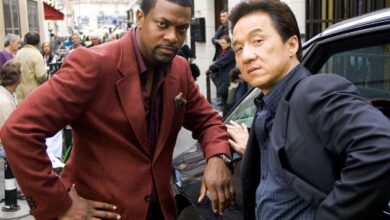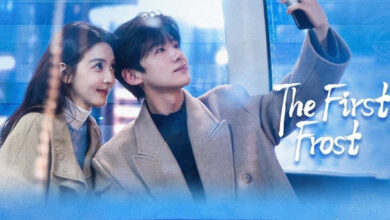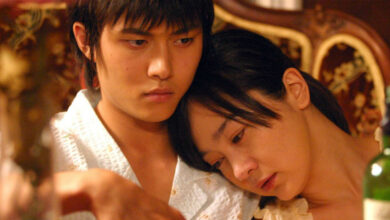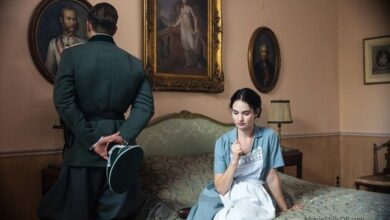Betty Blue (1986): “Love Is Not a Victory March”
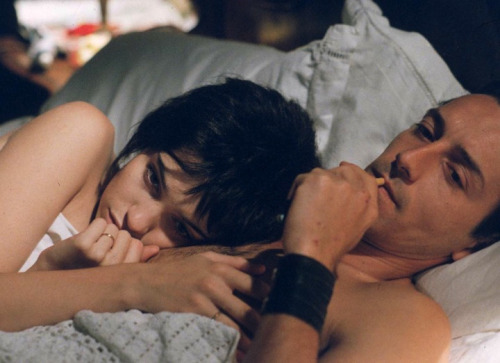
A Wild, Beautiful Descent into Madness and Desire
Few films burn themselves into your psyche like Betty Blue (37°2 le matin, 1986) — a raw, hallucinatory love story that unravels with devastating grace. Directed by Jean-Jacques Beineix and based on Philippe Djian’s cult novel, this French cinematic fever dream is more than just a film. It’s a plunge into the volcanic emotions of youth, obsession, and the destructive, beautiful madness we sometimes mistake for love.
At the heart of Betty Blue is one unforgettable quote that haunts the screen long after the credits roll: “Love is not a victory march.”
It’s not spoken verbatim in the film, but it hums beneath every frame — a sentiment so brutally honest, it may as well be Betty’s final cry.
Betty and Zorg: Lovers at the Edge of the World
The story revolves around Zorg, a struggling writer working as a handyman in a beachside bungalow colony, and Betty, a dazzling, unpredictable young woman who crashes into his life with the force of a storm. Their chemistry is electric, instant — the kind of connection that feels dangerous because it is.
Betty reads his unpublished novel and becomes convinced of his genius. She believes in him with the kind of ferocious devotion that only the desperate can afford. What begins as a sultry summer romance quickly spirals into a surreal descent, as Betty’s mental instability escalates, dragging both of them into a twilight zone between love and lunacy.
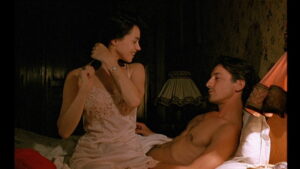
Passion Without Borders, Love Without Safety Nets
The film dares to show a kind of love that is rarely captured in cinema — unfiltered, raw, and terrifying in its intensity. Betty isn’t your manic pixie dream girl. She’s a ticking time bomb of emotion, someone who feels too deeply and lives too intensely for the world around her.
Zorg follows her into this emotional maelstrom not because he’s naïve, but because part of him is addicted to the chaos she brings. And who wouldn’t be? Beatrice Dalle, in her spellbinding debut as Betty, is magnetic — her beauty disarming, her fragility painful to witness. Dalle doesn’t just play Betty; she is Betty.
The Madness of Wanting Too Much
Beineix’s direction is lush, sensual, almost voyeuristic. He invites us into intimate spaces, both physical and emotional. The colors are vibrant, the camera lingers, the music swells like a pulse. Everything is heightened, as if seen through the eyes of someone on the brink of ecstasy or collapse — or both.
But beneath the eroticism and the dreamy visuals is a quiet tragedy. Betty wants to be seen, needed, adored — not just by Zorg, but by life itself. When that craving goes unmet, the film takes a sharp turn into darkness. The reality is: love doesn’t always heal. Sometimes, it breaks you open.
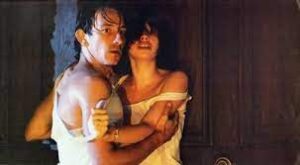
“Love Is Not a Victory March”
Though the film’s tagline may never state it directly, Betty Blue is a masterclass in this brutal truth. The quote, borrowed from Leonard Cohen’s “Hallelujah,” encapsulates the film’s emotional core: love, real love, is not triumphant. It’s not always pretty. Often, it’s tragic.
Betty’s love burns too brightly for the world to handle. And when the world fails her, it’s not just a personal loss — it’s a collective tragedy. We’re forced to ask: what do we do with people who feel too much? Who love too deeply? Who can’t be contained?
Final Thoughts
Nearly four decades later, Betty Blue remains a visceral, unforgettable experience — a film that doesn’t just show you love, but feels it in all its madness and glory. It’s a story that refuses resolution, because real passion rarely has one.
“Love is not a victory march.” It’s a messy, chaotic war of the heart — and in Betty Blue, it’s both a miracle and a curse.
If you’ve ever loved recklessly, if you’ve ever lost yourself in someone else’s storm — Betty Blue will hurt. But it will also remind you: there was beauty in that fire.
And maybe, for a moment, that was enough.

